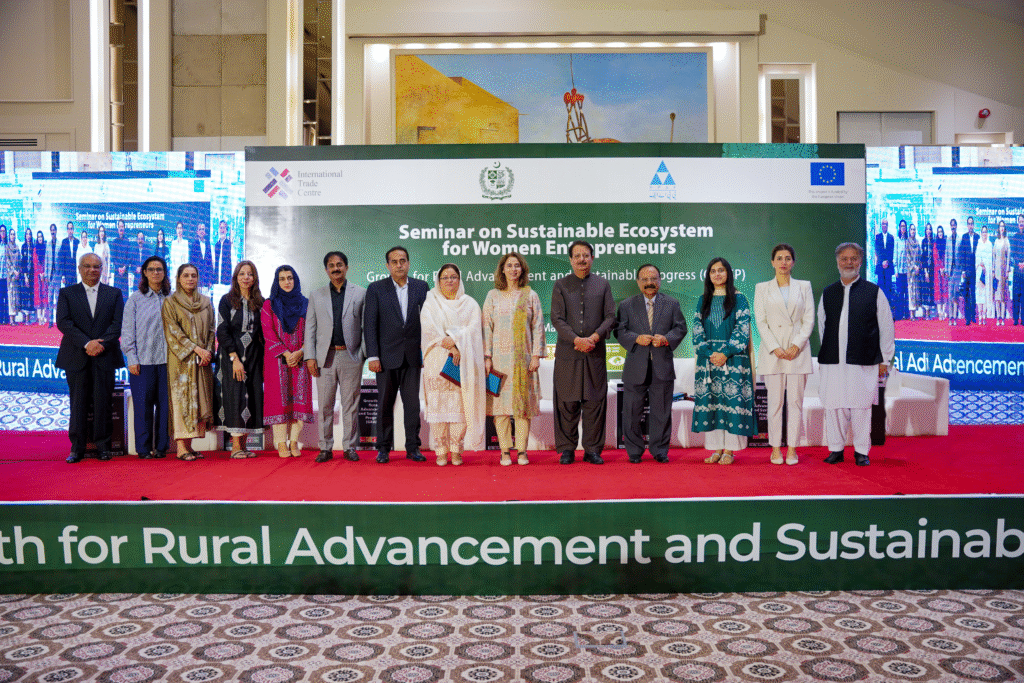The seminars represent a vital step toward a
more inclusive, innovative, and resilient Pakistan
where women are leaders shaping the future
Staff Reporter

Karachi: In a significant step toward strengthening gender-inclusive development at the provincial level, two seminars titled “Building a Sustainable Ecosystem for Women Entrepreneurs” and “Women in Agriculture: Leadership, Innovation & Impact” were held in Karachi under the EU-funded GRASP project. These events brought together federal and provincial government leaders, development organizations, financial institutions, private sector representatives, and grassroots activists to advance women’s economic empowerment, sustainable innovation, and inclusive growth.
Key Leaders Emphasize Women’s Central Role
Federal Minister for National Heritage and Culture, Mr. Aurangzeb Khan, highlighted the vital role of women in national progress. “Women are central to Pakistan’s future. No economy can reach its potential without fully engaging the talent, leadership, and resilience of its women,” he said. Similarly, Nadir Gul Brech, CEO of PPAF, stressed the importance of grassroots empowerment, noting that women must lead sustainable development efforts.
Agriculture and Women’s Empowerment
Sardar Muhammad Bux, Minister of Agriculture, focused on rural women’s contributions to agriculture. He called for equipping women with the tools and recognition needed to lead, especially amid climate challenges and economic shifts. The Minister for Women and Development also stressed moving beyond symbolic efforts, advocating for women’s inclusion in all policy areas.
Institutional Commitment to Gender Equality
Ms. Tanzila Ume Habiba, Specialist Advisor to the Chief Minister Sindh, reinforced the need for institutional alignment and policy accountability. She emphasized embedding gender considerations across ministries and in budget planning to ensure sustainable empowerment.
Collaborative Efforts and Future Plans
The seminars gathered key stakeholders including the Human Rights Commission, Women Chamber of Commerce & Industry, National Incubation Center, and others. Discussions focused on addressing structural barriers and promoting solutions such as gender-sensitive financial services, climate-smart agriculture, digital inclusion, and leadership development. A joint working group will now be formed to create a provincial action plan to scale successful initiatives and enhance access to finance aligned with national gender equality goals.























